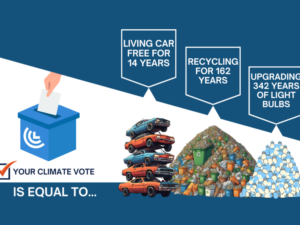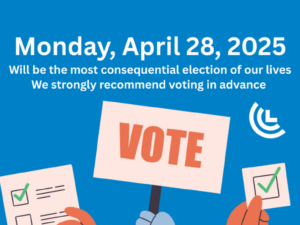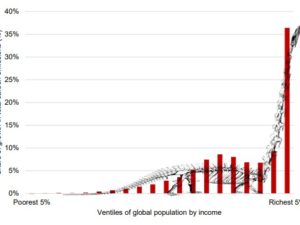Climate volunteers from across Canada are preparing for Election 2019 Sudbury ON: Citizens’ Climate Lobby (CCL) is conducting a survey of the climate change-related election platforms of the four major political parties in the national election anticipated in October 2019. This week they are sending the four major political parties our questionnaire to be answered by July 15. Here are the questions: 1) What are your party’s targets for reducing GHG emissions for 2030 and 2050? Will you make them legally-binding under national law? Will your party remain committed and party to the Paris Agreement? 2) Is your party committed to a rising national carbon price? Please explain. 3) How will your party protect the poor and middle class during the transition? 4) How will your party support and engage with farmers during the transition? 5) How will your party support emissions-intensive, trade-exposed industries during the transition? 6) What will your party do to ensure a fair transition for displaced workers in the fossil fuel industry? 7) Is your party committed to a revenue-neutral carbon price? What climate policies other than carbon pricing would your party implement and how would they be financed? 8) Will your party maintain funding for the Pan-Canadian Expert Collaboration, the new independent panel that analyzes Canada’s climate commitments? 10) What is your party’s plan for ending fossil-fuel subsidies. Please include the definitions of fossil fuels subsidies that must be phased out in the short, and medium term? In early August the information the parties share with us will be published online on our website in a table format similar to BC Election: Climate Action Counts and Ontario Election: Climate Action Counts. Parties will not be ranked nor graded. The table generated will serve as an aid to Canadians so that they can compare climate change policies in one simplified document in the lead up to election 2019. Anyone is welcome to use our questionnaire as a template for their questions to candidates during the election. Our volunteers across Canada will also hand out the answers to the survey questions at town halls and debates during the election, including the 100 Debates on October 7. We are in a global emergency. Youth, scientists, local governments and citizens worldwide demand major changes to keep global warming below 1.5 °C and to have a chance of protecting our future from worldwide ecological collapse. Recent reports, such as the IPCC 1.5°C Report, Canada’s Changing Climate report, the UN 1 Million Species Extinction report and the latest Mauna Loa CO2 reading of 415 ppm, highlight the need for urgent action. As of June 12, 2019, climate emergencies have been declared in 402 Canadian communities, covering 12,036,476 people. In August 2018, teenager Greta Thunberg from Sweden sparked the global Fridays for Future movement by striking from school to demand that leaders protect her future. On May 3, 2019, thousands of youth in 97 Canadian cities engaged in a nationwide strike and two weeks later on May 25 youth in 104 cities engaged in the global climate strike. An international global Earth Strike is set for September 27. On June 17, 2019 the House of Commons passed a motion to declare a national climate emergency. It did not pass unanimously. The Conservatives voted against the motion that “Canada is in a national climate emergency which requires, as a response, that Canada commit to meeting its national emission target under the Paris Agreement and to making deeper reductions in line with the agreement’s objective of holding global warming below two degrees Celsius and pursuing efforts to keep global warming below 1.5 degrees Celsius.” “We exist to create the political will for a liveable world. Our volunteers worked together across Canada using expert advice to design these questions,” says Cathy Orlando, CCL Canada’s National Director. “The world is at a pivotal moment in history. Canada could be a world leader or world laggard on climate action after Election 2019 depending on the commitments of the various political parties and who wins the election. Our volunteers are here to help Canadians move forward together.” CCL Canada is grassroots, nonpartisan and volunteer-run. We were founded in Canada in September 2010. We have stayed focused on building the political will for a liveable world by lobbying for an evidence-based carbon pricing policy. We know that is everything is connected and want for everyone to treat the climate crisis as the nonpartisan issue that it truly is. We appreciate Canada being a world-leader on carbon pricing, the Greenhouse Gas Pollution Pricing Act and the two years of negotiations for the Pan-Canadian Framework on Clean Growth and Climate Change which contains so much more than carbon pricing. Read more about us here: https://cclca.wpengine.com/about-ccl/ ###MEDIA RELEASE: Climate Action Counts in Federal Election 2019
For Immediate Release: June 18, 2019
9) How does your party’s platform align with a “Green New Deal” for Canada?
MEDIA RELEASE: Climate Action Counts in Federal Election 2019
Home » CCL Canada News » MEDIA RELEASE: Climate Action Counts in Federal Election 2019
MEDIA RELEASE: Climate Action Counts in Federal Election 2019
Posted on June 18, 2019 in Media Release












